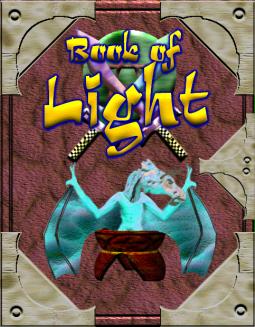

 |
 |
Children are amazing. To begin with, science has yet to justify just why we even exist. Then, the chances and effort that go into making just one of us are astronomical. When the child is born they have every human potential available to them. They seem to learn our language without much help. In fact, we are born with every phoneme required by every language on Earth.
Karma, that theory of the chain of causation, can include the set of choices and actions that bring each child from an encyclopedia of potential to a library of actual meaning. It is a simple process by which a child can establish their paradigm of the world at large. My only warning to parents would be that you are the primary model these children use to cultivate and cull behaviors. What are the scenarios that are the lesson plans of Karma?
Language development arises (or so the theory goes) mostly by instinct. Each child is born with every phoneme required by every language on Earth. As we mature and gain control of our linguistic powers, we are singing and chatting with the people around us.
How does Karma prepare a child for the grand old world? Is it not through trial and error? If a child approaches a stove, reaches up to a pot, and burns himself, he has learned to be careful around the stove. He may now choose to avoid the stove completely, or check the stove first and be safe.
Even helping a child shape her or his social skills is an interaction of Karma. Through the experiences with her or his parents, the child learns about people, and even the gods. Teaching a child to trust in a safe and effective way is never easy. The child may feel justified that life is not fair, and often she or he is justified. The neurosis can arise when a parent places conditions on meeting emotional or other needs. We may observe two children asking for an ice cream as an illustration of this point. If “Raven” asks for an ice cream, and the mother says no. She or he may be disappointed at not receiving an ice cream, which is all. If “Robin” asks for an ice cream, and the mother says no, this child is disappointed. To prove it we may be entertained by a bout of balling or other aggressive expressions. The mother did not deny this child an ice cream. “Robin” has it in her or his head that the ice cream was a symbol of his parent’s love. Having been denied the Ice Cream, the child has also been denied mothers’ love. How does this happen?
On a personal level, the child can learn trust — or mistrust — from the Karma of Relationships. A child climbs a tree. Daddy says, “jump, I’ll catch you.” The Child jumps, daddy may or may not catch the child, and the story ends. If ten times out of ten daddy catches the child, the child will learn to trust daddy. If ten times out of ten daddy does not catch the child, and the child will still learn to trust … that daddy will never catch him. In time, the child will extend this trust into the environment, and even into God. Yet, if four times out of ten they repeat this story either way, this child will learn to mistrust, the environment, other people, and even God.
When an adolescent protests that her or his parents aren’t listening, the evidence has been accumulating from her or his earliest childhood. We learn early just how much fuss we must make to get something to eat, or a warm cuddle. If they ask us to watch what they consider an accomplishment, they will assess how valued such displays by how attentive we really are. If we say we are watching when we aren’t, they learn that we do not value “truth,” and lying is all right.
Children are not passive students of life. They are extraordinary observers and participants of that chain of causation we call Karma. The child need not recall some trauma from another life to have difficulty coping with this one. The illustrations in this essay are ample evidence for such trauma within a single life time. It is a simple process through which a child can establish their paradigm of the world at large. These sorts of scenarios are the lesson plans of Karma.